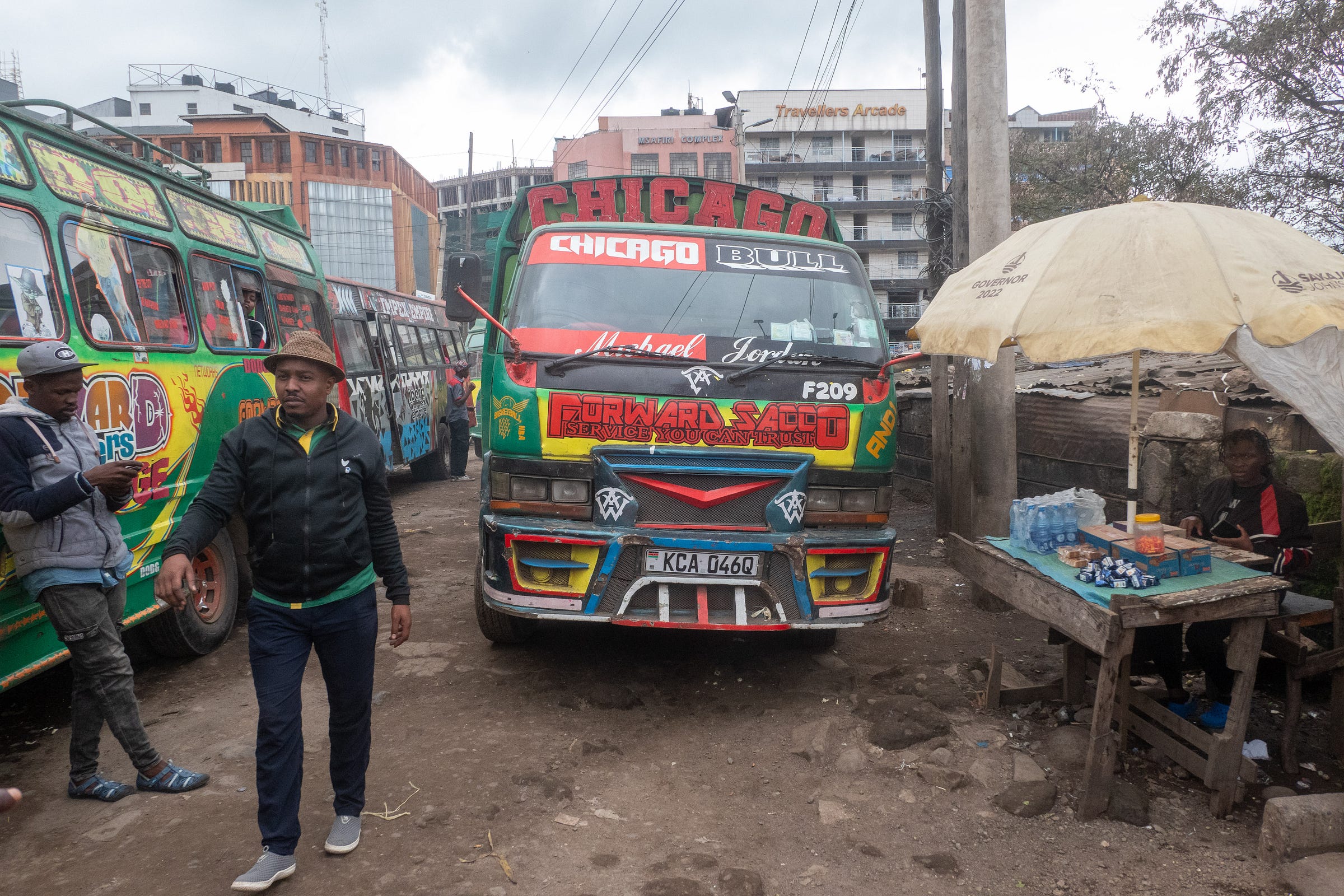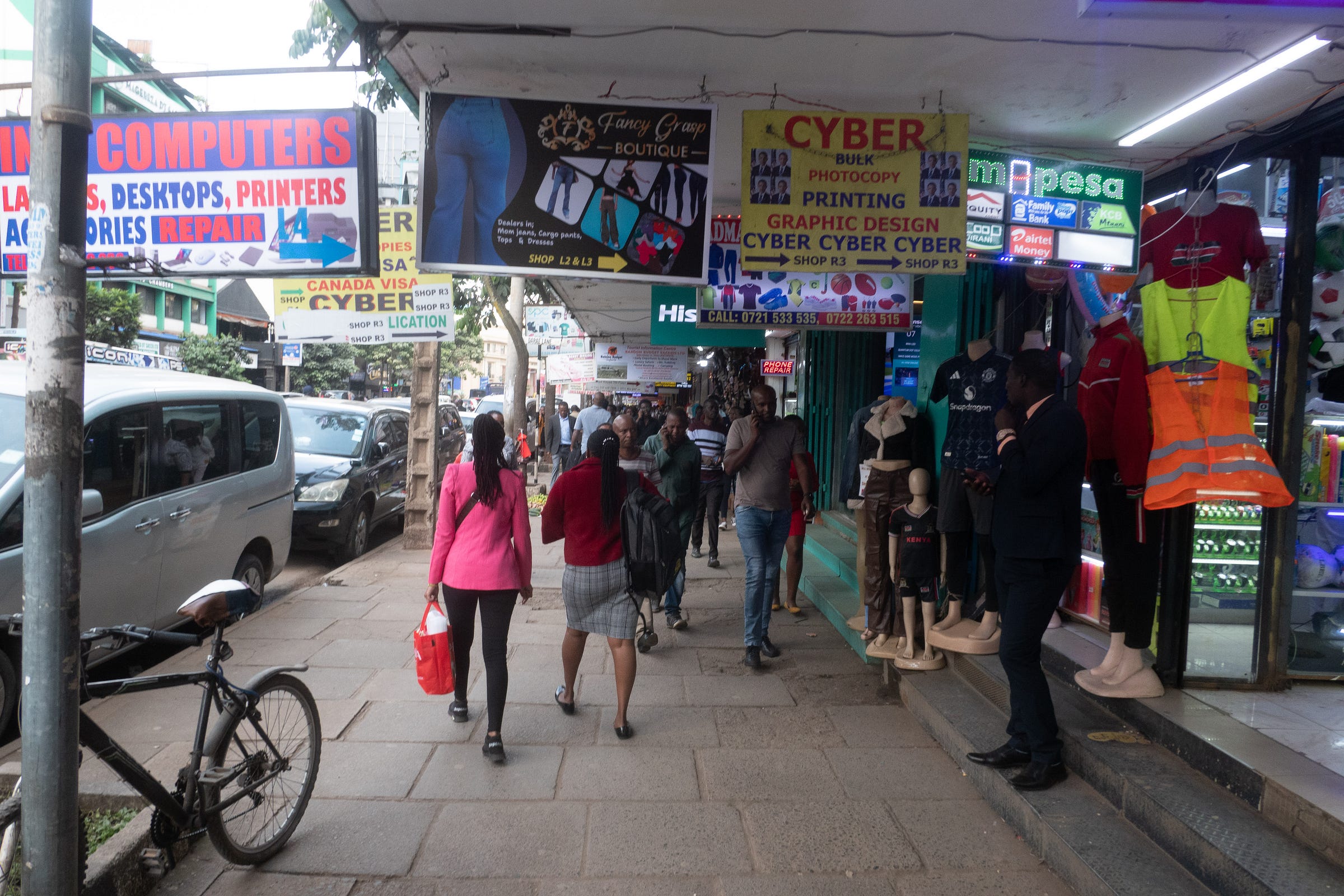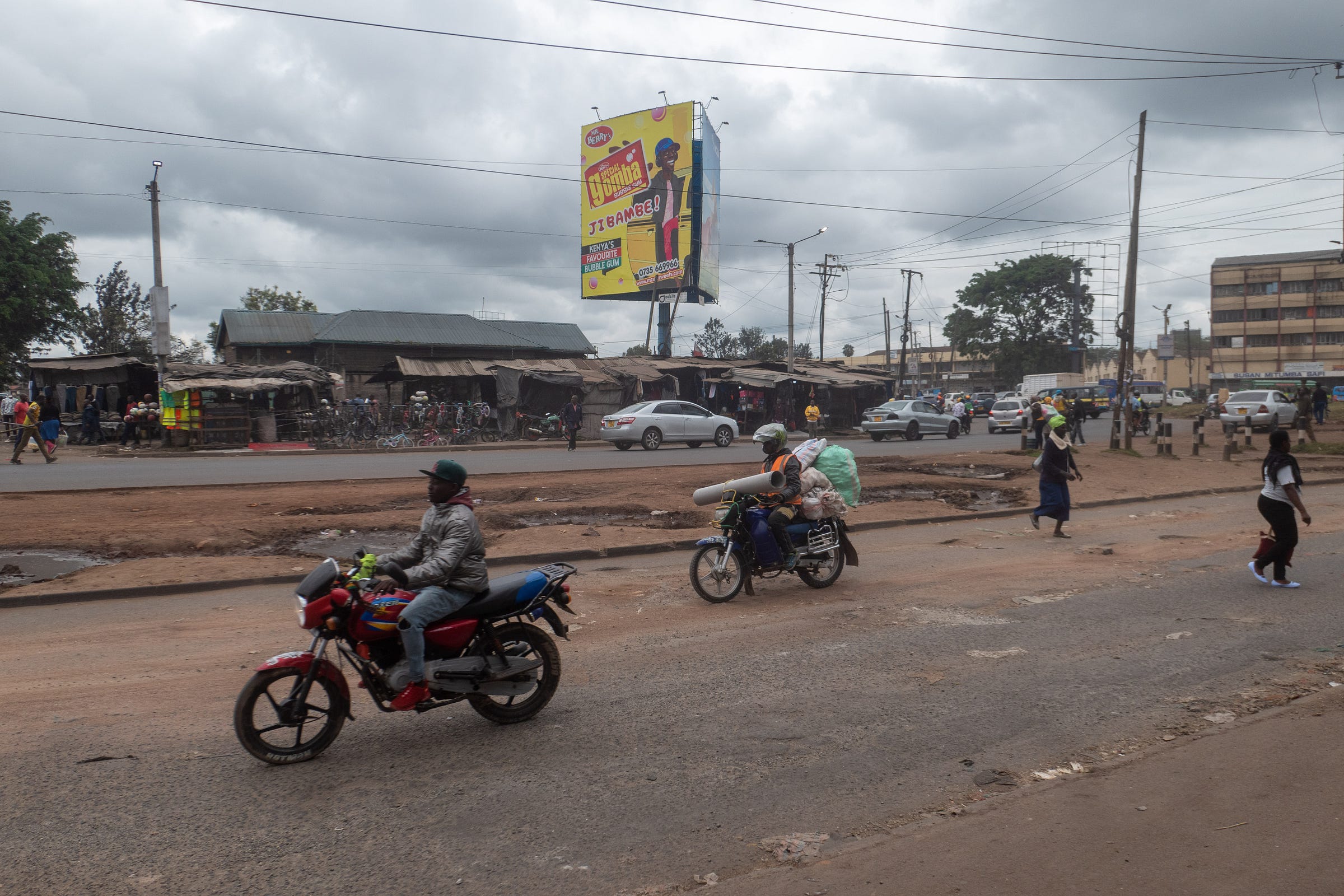Walking Nairobi
A step up in wealth, altitude, and anger
(My prior two pieces from this trip are here: Walking Kampala, Leaving Kampala)
Nairobi and Kampala should be very similar, and are, at least at the superficial level. Both are large Central African capitals within spitting distance of the equator, both have doubled their populations in the last twenty years, swelling each beyond the breaking point, and both share an entangled past, including a colonial period shaped by the UK.
Yet Nairobi is a step up, in altitude and wealth. It’s two-thousand feet higher1 and slightly over twice as rich.2 You feel the impact of the first the minute you exit the plane, with temperatures ten degrees cooler, a nice relief, although the sun is equally fierce and unforgiving.
The impact of the second takes a little longer to notice and appreciate, although it’s far more important and consequential. You begin to see it on the drive into the city, where the road is thick with more cheap Japanese hatchbacks and fewer Boda-bodas, and lined with more pre-fab block malls, and fewer tin-and-wood shanties.
I spent my first afternoon in Nairobi’s downtown3, nicknamed CBD (Central Business District), too tired to wander too far. Within an hour I’d found my regular coffee shop, a fantastic restaurant where I ate all my remaining meals (more on that below), and two bars I could relax in without being bothered by professionals, all things I never found in Kampala’s downtown.
By western standards CBD is still chaotically busy, but unlike Kampala, it’s not filthy, has functional sidewalks, crosswalks, and road signs, and so you can navigate it without the constant worry of being hit by vehicle, twisting your ankle in a hole, or being stuck in a human traffic jam.
There’s still a pervasive disorder, that depending on your mood is either vibrant and colorful or vexing and unnerving, with vendors everywhere pitching everything, still a few twisted and destitute bodies holding out hands and tugging at your legs, still a discordant cacophony of buildings, people, and vehicles, but the mayhem, relative to Kampala, is muted a notch, jelled into a more orderly whole.
Going from Kampala to Nairobi is climbing one small rung up the economic development ladder, but it’s an important one. Increasing GDP from $1,000 to $2,000 per person might not seem dramatic, a rounding error for developed countries, but when you are at such low levels the impact is disproportionately large, propagating beyond healthier citizens, into a more robust commonwealth.
While a lot of my prior pieces might read anti-globalist, anti-materialist, extolling the virtues of having faith and community over having things, I’m not so naive and dogmatic as to romanticize deprivation. We in the West are fortunate to have reached a high enough rung on the economic ladder to have effectively eliminated extreme poverty, something much of Sub-Sahara Africa hasn’t achieved.4
The climb up the economic ladder is not linear and at some point, roughly around $4,000 to $6,000 GDP/capita from my observations, a phase transition occurs, when abrupt and dramatically healthy changes take place, both for citizens, but also for society.
Once this point is achieved residents are not constantly worried about not having enough, and that’s the difference between a life of continual toil, suffering, and pain, and one where people are free to seek higher purpose and build greater things.
Neither Uganda, Kenya, or Senegal5 for that matter, has obtained that level, so for over half the citizens life is “nasty, brutish, and short,” although it’s hardly solitary6.
This, in many ways is a long-winded answer to a reader’s question posted in my last piece, Leaving Kampala,
Your responses to African countries - Senegal and now Uganda - seem very different than your responses to other countries you have visited, just on a visceral level. Not that you haven’t had rough times other places but you have also always seemed to find an unforced joy there as well. Something feels bleak in how you describe your times in Africa. Any thoughts on why that is? Is the nature of the poverty different or deeper? A harder time finding your way in emotionally?
Very poor countries, are to be blunt, are depressing to be in, which should be the case, because their existence in our modern world of such immense wealth, the greatest ever in our million year history of humankind, is depressing.
You can hide from its existence, both by never going to Uganda, Kenya, or Senegal, or when you go there by sticking only to the well-to-do neighborhoods where the Muzungus7 accumulate. In Nairobi that is partly in the CBD, but mostly it is in Westlands, Upper Hill, and Karen, which while not literally gated, are small pockets of the developed world that prices out those living in extreme poverty, except as cheap labor.
Nairobi is different from Kampala in that these pockets are larger, sturdier, and less impacted by the surrounding poverty, which while making for a more pleasant experience as visitor, does beg moral questions.




